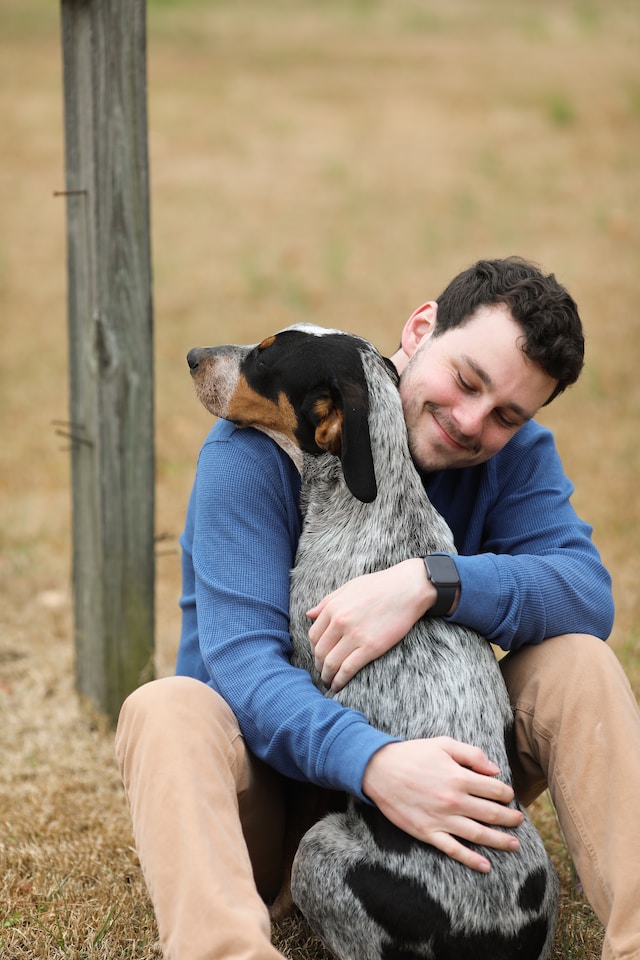Can You Really Get Good Quality Dogs from Dog Shelters? (Discover the Best Known Breeds)

Can you really get good quality dogs and better known breeds from the dog shelters? This is a question that many potential dog owners ask themselves, and the answer might surprise you. While shelters may not always have the purebred dogs that some people are looking for, they often have a wide variety of wonderful dogs that can make excellent pets.
At shelters, you can find dogs of different sizes, ages, and personalities. Many of these dogs are mixed breeds, which often have fewer health problems than purebreds. Plus, they have unique looks and personalities that make them one-of-a-kind companions.
In addition to mixed breeds, shelters sometimes have purebred dogs as well. These dogs may have ended up at the shelter due to a change in their owner’s circumstances, and they are just as deserving of a loving home as any other dog. So, if you are set on a specific breed, it’s worth checking out shelters and rescue organizations in your area.
Are Shelters a Good Source for Quality Dogs?
When searching for a new furry companion, many people wonder if they can find good quality dogs at dog shelters. Contrary to popular belief, dog shelters can be an excellent source for quality dogs. Not only do shelters have a wide variety of dogs available for adoption, but they also have processes and assessments in place to ensure the quality and suitability of the dogs for potential adopters.
Benefits of Adoption from Dog Shelters
Adopting a dog from a shelter comes with several benefits. Firstly, it gives a loving home to a dog in need, providing them with a second chance at happiness. Additionally, adoptable dogs from shelters are usually already vaccinated, microchipped, and spayed or neutered, saving new owners time and money. Furthermore, shelter staff can provide valuable information about the dog’s temperament, behavior, and any training they may have received during their stay at the shelter.
What Types of Dogs Are Usually Available in Shelters?
Dog shelters typically have a wide range of dogs available for adoption. They often have mixed-breed dogs, which can offer unique and diverse qualities. Additionally, shelters may have specific breeds or breed mixes that are popular in the area. While purebred dogs may be rarer in shelters than in specialized breeders, it is still possible to find them if you keep an eye out and are patient.
Popular Dog Breeds Found in Shelters
While the availability of popular dog breeds in shelters may vary, some commonly found breeds include Labrador Retrievers, German Shepherds, Pit Bull Terriers, Chihuahuas, and Beagles. These breeds are often surrendered to shelters due to various reasons such as changes in the owner’s circumstances or lack of proper training. By adopting these breeds from shelters, potential owners can provide them with the opportunity for a loving home and a fresh start.
How Can Shelters Ensure the Quality of Dogs?
Shelters have processes and assessments in place to ensure the quality of dogs available for adoption. They typically have a screening process to evaluate a dog’s health, behavior, and compatibility with potential adopters. This may involve medical examinations, vaccinations, temperament assessments, and behavioral evaluations. Shelters may also work with experienced trainers or behaviorists to address any behavioral issues and provide necessary training before a dog is made available for adoption.
Shelter Screening Processes and Assessments
- Health evaluations to check for any underlying medical conditions and ensure dogs are up to date on vaccinations and spayed or neutered.
- Behavior assessments to evaluate a dog’s temperament, socialization skills, and suitability for different types of homes.
- Compatibility tests to assess a dog’s interaction with other animals and determine if they would thrive in certain living environments, such as homes with children or other pets.
- Training and rehabilitation programs to address any behavioral issues and provide dogs with the necessary skills to succeed in their future homes.
Tips for Finding Better Known Breeds in Dog Shelters
If you are specifically interested in adopting a better-known breed from a dog shelter, there are strategies you can employ to increase your chances:
- Regularly check the websites and social media pages of local shelters for updates on available dogs.
- Reach out to shelters and let them know your interest in a specific breed, as they may have a waiting list or be able to notify you when a dog of that breed becomes available.
- Utilize breed-specific rescue groups or networks that focus on finding homes for specific breeds.
- Be patient and flexible; finding a specific breed in a shelter may take time, and you may need to consider mixed-breed dogs that possess some of the desired breed characteristics.
By following these tips, you can increase your chances of finding the better-known breed you’re looking for in a dog shelter and provide a loving home to a deserving dog.
Benefits of Adoption from Dog Shelters
Adopting a dog from a shelter can be a rewarding experience for both you and the dog. There are several benefits to choosing adoption from a dog shelter:
- Saving a life: By adopting from a shelter, you are giving a second chance to a dog in need and providing them with a loving forever home.
- Wide variety of dogs: Shelters have dogs of all shapes, sizes, and breeds, so you can find the perfect furry friend to fit your lifestyle and preferences.
- Health screenings and vaccinations: Dogs in shelters typically receive thorough health screenings and vaccinations, ensuring that they are healthy and ready to join your family.
- Reduced cost: Adoption fees from shelters are often more affordable than purchasing a dog from a breeder.
- Supporting a good cause: By adopting from a shelter, you are supporting their mission of providing care and shelter to homeless animals.
- Bonding and companionship: Dogs from shelters can be incredibly grateful and loyal companions, forming a strong bond with their new owners.
Consider adopting from a dog shelter the next time you are looking to add a furry friend to your family. The love and gratitude you receive in return will be immeasurable.
What Types of Dogs Are Usually Available in Shelters?
Dog shelters are home to a wide variety of dogs, each with their own unique characteristics and personalities. While the specific breeds available in shelters can vary, there are a few common types of dogs that are often found in these facilities. Here are some of the types of dogs you can typically expect to find in shelters:
Mixed Breed Dogs
Mixed breed dogs, also known as mutts, are the most common type of dogs found in shelters. These dogs are a combination of different breeds and often have a unique blend of traits and appearances. Adopting a mixed breed dog can be a wonderful experience, as they often have a one-of-a-kind personality and may be less prone to certain breed-specific health issues.
Small Breed Dogs
Many shelters are also home to small breed dogs such as Chihuahuas, Shih Tzus, and Dachshunds. These dogs are often surrendered or abandoned for various reasons, but they can make great companions for individuals or families living in smaller spaces or looking for a smaller-sized dog.
Large Breed Dogs
Large breed dogs, such as Labrador Retrievers, German Shepherds, and Pit Bulls, can also be found in shelters. These dogs may have been surrendered due to their size or specific needs, but they can be wonderful additions to the right family or home environment. It’s important to consider factors such as space, exercise requirements, and training when adopting a large breed dog.
Puppies and Young Dogs
Shelters often have puppies and young dogs available for adoption. These dogs may have been born in the shelter or surrendered at a young age. Adopting a puppy or a young dog can be a rewarding experience, but it’s important to remember that they require a significant amount of time, attention, and training.
Senior Dogs
Senior dogs, typically aged 7 years and older, can also be found in shelters. These dogs may have been surrendered due to their age or because their previous owners could no longer care for them. Adopting a senior dog can be a wonderful choice for individuals or families looking for a more relaxed and low-energy pet.
Regardless of the type or breed of dog you choose to adopt from a shelter, it’s important to remember that each dog is an individual with their own unique needs and personality. Taking the time to understand and meet the specific needs of your new furry friend can help ensure a successful adoption and a loving forever home.
Popular Dog Breeds Found in Shelters
While dog shelters may have a mix of various breeds, there are several popular dog breeds that can often be found in shelters. These breeds can make wonderful companions and family pets. Here are some popular dog breeds that are commonly found in shelters:
- Labrador Retriever: Known for their friendly and outgoing nature, Labrador Retrievers are one of the most popular dog breeds worldwide. They are intelligent, loyal, and great with families.
- German Shepherd: German Shepherds are highly versatile dogs that are often found in working roles such as search and rescue, police, or service dogs. They are intelligent, protective, and make great companions.
- Boxer: Boxers are energetic and playful dogs that are known for their friendly and affectionate nature. They are great with families and love to be part of the action.
- Pit Bull Terrier: Despite misconceptions, Pit Bull Terriers can be loving and loyal dogs. They are often found in shelters due to breed stigma, but can make great companions in the right home.
- Chihuahua: Chihuahuas are small dogs with big personalities. They are known for their alertness and loyalty to their owners.
- Beagle: Beagles are friendly and sociable dogs that love to explore and follow scents. They make great companions for active families.
Remember that the availability of specific breeds may vary depending on the location and time. It’s important to research and visit local shelters to see the dogs available for adoption.
How Can Shelters Ensure the Quality of Dogs?
Ensuring the quality of dogs in shelters is a crucial aspect of responsible pet adoption. Shelters employ various processes and assessments to evaluate the health, behavior, and overall suitability of dogs for adoption. These measures are in place to ensure that dogs find loving homes where they will be well-cared for. Let’s take a closer look at the methods shelters use to ensure the quality of dogs:
1. Health Checks
Shelters conduct thorough health checks on dogs to identify any existing medical conditions or issues. This includes vaccinations, spaying or neutering, and screening for common health problems. Dogs that are not in good health receive proper medical care and treatment to ensure their well-being before they are made available for adoption.
2. Behavioral Assessments
Behavioral assessments help shelters understand a dog’s temperament, personality, and behavior. Trained staff and volunteers observe and interact with dogs to evaluate their sociability, trainability, and compatibility with different environments. This assessment helps match dogs with potential adopters who can meet their specific needs and provide the appropriate level of care and training.
3. Socialization and Training
Shelters work to socialize and train dogs to make them more adaptable and well-behaved. They provide enrichment activities, exercise, and positive reinforcement training to improve a dog’s social skills, obedience, and manners. Well-socialized and trained dogs are more likely to successfully transition into their new homes and form positive relationships with their adopters.
4. Behavior Modification Programs
In cases where dogs exhibit specific behavioral issues, shelters may implement behavior modification programs. These programs focus on addressing and improving problematic behaviors through positive reinforcement, desensitization, and counterconditioning techniques. This ensures that dogs have a better chance of finding loving homes, even if they require additional training and support.
5. Collaboration with Rescue Organizations
Shelters often work closely with rescue organizations that specialize in specific breeds or types of dogs. This collaboration allows shelters to transfer dogs to rescue organizations that have the resources and expertise to provide breed-specific care and placement. By working together, shelters and rescue organizations can ensure that each dog receives the best possible chance for a successful adoption.
By implementing these processes and assessments, shelters can ensure the quality of dogs and promote responsible pet adoption. It is important for potential adopters to have confidence in the dogs available for adoption and trust that shelters have taken the necessary steps to evaluate their health and behavior.
Shelter Screening Processes and Assessments
Shelters play a crucial role in ensuring the quality of dogs available for adoption. They have screening processes and assessments in place to evaluate the health, behavior, and overall suitability of each dog before making them available for adoption. These processes help ensure that people can find good quality dogs when adopting from shelters. Here are some key aspects of shelter screening processes and assessments:
- Medical Examinations: Dogs in shelters undergo medical examinations to check for any underlying health issues or medical conditions. This helps identify and address any immediate health concerns before the dog is adopted.
- Behavioral Assessments: Shelters also assess the behavior of dogs to determine their temperament, socialization, and any specific needs they may have. This helps match dogs with suitable adopters and ensure a good fit for both the dog and the new family.
- Spaying/Neutering: Shelters often ensure that all dogs are spayed or neutered before adoption, in accordance with responsible pet ownership practices. This helps control the pet population and prevent unwanted litters.
- Vaccinations and Microchipping: Dogs in shelters receive necessary vaccinations and are often microchipped for identification purposes. This ensures that adopted dogs are protected against common diseases and can be easily traced back to their owners if they get lost.
- Observation Periods: Shelters may have observation periods during which they closely monitor the behavior and health of dogs before making them available for adoption. This allows for a better understanding of the dog’s personality and any potential issues that may arise.
These screening processes and assessments help shelters maintain a high standard of care and ensure the quality of dogs available for adoption. By adopting from shelters, individuals can have confidence that they are bringing home a well-screened and assessed dog that has received necessary medical attention and behavioral evaluations.
Tips for Finding Better Known Breeds in Dog Shelters
Finding specific dog breeds in shelters can sometimes be a challenge, but with a few strategies and tips, you can increase your chances of finding the breed you’re looking for. Here are some tips to help you in your search for better known breeds in dog shelters:
1. Research local shelters:
Start by researching local shelters in your area to find out which ones are more likely to have a variety of breeds available. Some shelters specialize in certain breeds or have a higher turnover of popular breeds.
2. Check breed-specific rescues:
Look for breed-specific rescues in your area that focus on rescuing and rehoming specific dog breeds. These rescues often have a higher chance of having the breed you’re looking for.
3. Be patient and persistent:
Finding a specific breed in a shelter may take time, so be patient and persistent in your search. Check regularly with shelters and rescues, as their inventory can change frequently.
4. Work with a shelter or rescue:
Contact shelters or rescues directly and let them know the specific breed you’re looking for. They may be able to notify you if that breed becomes available or offer suggestions for other resources.
5. Attend adoption events:
Keep an eye out for adoption events in your area where different shelters and rescues come together. These events can often have a higher variety of breeds available, increasing your chances of finding the one you want.
6. Consider mixed breeds:
If finding a purebred is not a priority, consider adopting a mixed breed dog. Mixed breed dogs can have wonderful personalities and may have traits from the breeds you’re interested in.
7. Foster a dog:
Consider fostering a dog from a shelter or rescue. Fostering gives you the opportunity to provide a temporary home for a dog while also helping shelters and rescues free up space for more dogs, increasing the chances of finding your desired breed down the line.
Remember, while finding a specific breed in a shelter may require some effort, adopting a dog from a shelter or rescue can be incredibly rewarding. You may not only find the breed you’re looking for but also provide a loving home to a dog in need.
Strategies for Discovering Popular Dog Breeds in Shelters
Finding popular dog breeds in shelters may require some extra effort and research, but it is possible to discover your desired breed. Here are some strategies to help you in your search:
- Research local shelters: Start by researching the shelters in your area and get in touch with them to inquire about the breeds they have available.
- Visit breed-specific rescues: Some shelters or rescue organizations specialize in specific dog breeds. Explore these options to increase your chances of finding the breed you desire.
- Attend adoption events: Many shelters host adoption events where you can meet a variety of dogs, including popular breeds.
- Set up alerts: Check if shelters have alert systems where you can sign up to receive notifications when specific breeds become available for adoption.
- Follow social media: Follow shelters, rescue organizations, and breed-specific groups on social media. They often post updates about available dogs and upcoming adoption events.
- Network with dog lovers: Talk to other dog lovers, join online forums or groups, and ask for recommendations on where to find specific breeds in shelters.
- Be patient and persistent: Finding a specific breed may take time, so be patient and keep checking with shelters regularly. Remember, the right dog for you may not always be a purebred, so be open to mixed breeds as well.
With these strategies, you can increase your chances of finding popular dog breeds in shelters. Adopting a dog from a shelter not only gives a good home to a deserving dog but also brings immense joy and fulfillment to your life.
Conclusion
When searching for a new furry companion, dog shelters can be an excellent source for quality dogs. Shelters have a wide variety of dogs available for adoption and have processes in place to ensure the quality and suitability of the dogs. Adopting a dog from a shelter not only gives them a second chance at happiness but also provides several benefits for the adopter, including saving a life, access to a wide variety of dogs, reduced cost, and supporting a good cause. Shelters employ various screening processes and assessments, such as health checks, behavioral assessments, and socialization and training programs, to ensure the quality of dogs. By adopting from a shelter, individuals can have confidence in the dogs available for adoption and provide a loving home to a deserving dog.
While finding specific breeds in shelters may require some effort and patience, there are tips and strategies that can increase your chances. Researching local shelters, checking breed-specific rescues, attending adoption events, and being patient and persistent can all contribute to finding the popular dog breeds you desire. However, it’s also important to be open to mixed breeds, as they can offer unique traits and personalities. By following these strategies and considering all available options, you can increase your chances of finding the perfect dog breed for you in a shelter. Remember, adopting a dog from a shelter not only fulfills your desire for a specific breed but also provides a loving home to a dog in need.
Consider visiting a shelter today and giving a dog a second chance at finding a forever home. The joy and fulfillment you’ll experience from the loving companionship of a shelter dog is invaluable.






